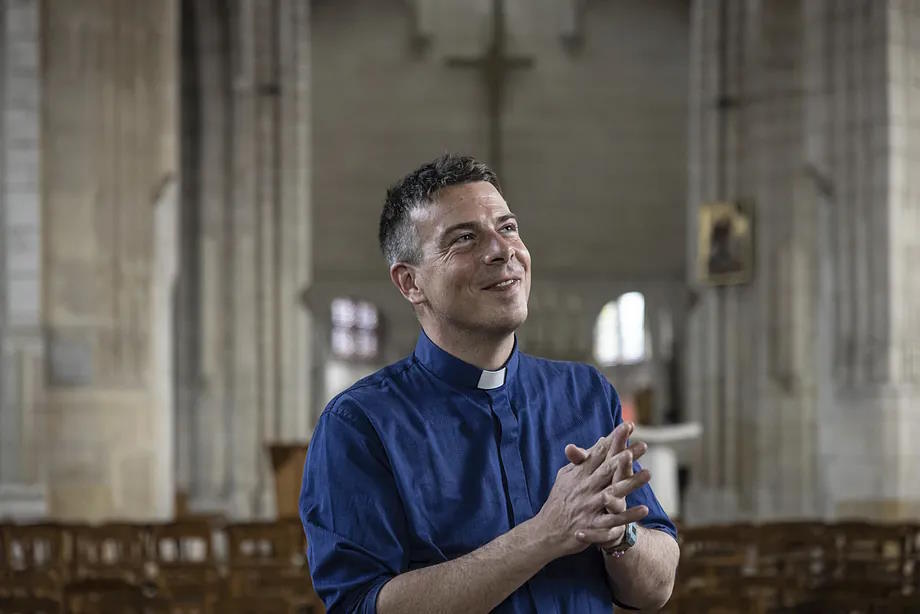He was the religious star of TikTok, where he had over a million followers and posted videos sharing his particular view of the Christian religion. He defended, for example, that homosexuality is not a sin. Neither is masturbation. A few months ago, he decided to close his accounts because he didn't want to become "a guru," and now the next step has been to leave the Church directly due to the threats and insults he says he has received.
"I'll tell you everything about why I'm leaving the cassock." This is the title of the video posted on YouTube in which Matthieu Jasseron, the 39-year-old French priest who was a success on social media, explains, walking through a forest, how he has gone from being a priest to a hermit (he now lives in a house in the mountains). "Now I am simply Matthieu Jasseron. I am retiring from the priesthood. I am no longer in tune enough with the institutional Church to continue being one of its preachers, administrators, or even one of its religious officials."
He claims to have received "threats and intimidations" for his too open stances. His superiors called him in for questioning when he posted a video in which he argued with some of his followers when they asked him about homosexuality. He said that there is no biblical text that says it is a sin. His intervention was not well-received. "The Church does not classify masturbation as a sin, but as a disordered act," he also pointed out in another video.
Jasseron worked in a parish in Joigny (Yonne), in the Burgundy region, for four years. His departure from the Church, he says, is not about revenge; he has proclaimed his love for "the Christian family" and says he will continue writing about his relationship with religion: he has written two books and is working on the third. In the latest one published, he said that "not all priests are like the mafiosos and traitors" he now criticizes.
He describes the Church as a system that has turned Catholicism into a kind of "political party." "The Church does not recruit its officials to become potential abusers. It is simply, in its way of life, a breeding ground capable of transforming any altar boy into an inquisitor and sometimes even a true predator," he says.
He claims to have been a victim of a series of threats and intimidations from his colleagues, to have been physically assaulted by another priest. He denounces being prohibited from attending a gathering because other priests were uncomfortable with his presence, and that he has been threatened, had his identity usurped on social media, and his speech manipulated.
"I was defamed by several Christian newspapers who were very aware that they were writing radically the opposite of what I was trying to express, to please their audience and without giving me the right of reply," he lamented. He says that some "integralist priests" have organized sit-ins against him and regrets being on a blacklist for his ideas.
"The institutionalization of Jesus by his friends (from the Church) and disciples is a problem," he criticizes. He denounces the role of bishops and the power they hold. He concludes: "Except in dictatorships, this does not exist anywhere else except in the Church." This, he points out, makes people "tolerate small abuses, which can lead to larger ones."
